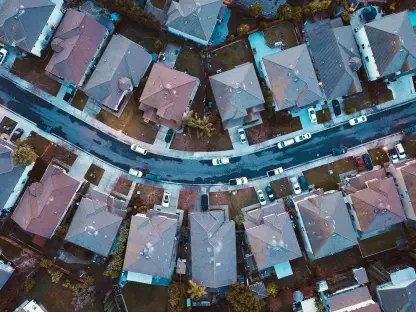As climate change increasingly demands action, cities worldwide have emerged as critical players in implementing climate initiatives amid federal policy retreats. The importance of local governance is growing as national governments, like the United States under the Trump administration, pull back from international climate commitments. Cities are stepping forward within this global climate action framework, demonstrating significant progress in reducing emissions and setting ambitious environmental goals.
Global City-Led Climate Initiatives
Collaborative Efforts Across Cities
The rise of transnational city alliances and partnerships highlights the power of collaboration in addressing climate challenges. Organizations like C40 Cities and the Global Covenant of Mayors play a crucial role in fostering cooperation among city leaders. This collaborative spirit enables cities to share best practices and jointly develop innovative strategies to tackle climate change. As illustrated by the Climate Mayors initiative, U.S. city mayors are collaborating with international counterparts, emphasizing the pivotal role cities have in leading climate action and mitigating the impacts of climate change.
Emissions Reduction Achievements
Data underscores the impact of these collaborative efforts, with a report from C40 Cities and the Global Covenant of Mayors indicating a 7.5% reduction in per-capita emissions in nearly 100 major cities globally over the past nine years. Examples of cities like Phoenix showcase how local initiatives can significantly contribute to lowering carbon footprints. Through sustainable policies and clean energy investments, these cities are setting benchmarks for others to follow and proving that local action can drive substantial emissions reductions.
Challenges and Opportunities in City-Led Climate Action
Navigating Federal Retreat
Despite the momentum, cities face challenges stemming from the absence of federal support in climate initiatives. The lack of comprehensive federal policies complicates the task for local leaders, yet it also presents opportunities for cities to exercise local autonomy. This independence allows cities to tailor their approaches to specific local needs, fostering innovative solutions to climate change. As a result, cities can lead by example and demonstrate the effectiveness of decentralized climate action strategies.
Innovation and Adaptation Strategies
Cities are increasingly adopting cutting-edge technologies and policy innovations to address climate challenges. From investing in renewable energy sources to implementing smart city technologies, urban centers are finding creative ways to adapt to and mitigate climate change. These adaptable strategies not only enhance resilience but also offer cities a competitive edge in the global push toward sustainability. By leveraging technology and innovation, cities can achieve substantial environmental benefits while contributing to economic growth and job creation.
The Regulatory Environment Affecting City Actions
Impact of Federal Policies and Local Responses
Federal policy decisions have a significant impact on local climate efforts, influencing the direction and scope of municipal initiatives. In response, cities are employing diverse local regulations to pursue sustainable development goals, demonstrating their ability to navigate a complex regulatory landscape. The effectiveness of municipal policies often hinges on their alignment with global climate goals and the agility of local decision-makers in adapting to changing circumstances.
International Climate Commitments
Global agreements like the Paris Agreement set the stage for city initiatives by outlining ambitious targets for emissions reductions. City leaders are actively engaged in fulfilling these international commitments, positioning themselves as critical actors in global climate governance. Through robust local policies and innovative approaches, cities contribute meaningfully to the realization of international climate objectives, creating a powerful precedent for future urban climate leadership.
Future Directions in Urban Climate Leadership
Emerging Trends and Innovations
Emerging trends in urban climate action, including technological advancements and sustainable urban planning practices, are reshaping the landscape of environmental governance. Developments in areas such as energy efficiency, green infrastructure, and digital technologies offer promising avenues for cities to explore. Continued investment in these innovations will likely disrupt traditional approaches to urban development, paving the way for more sustainable and resilient urban environments.
Long-Term Vision and Goals
Cities are crafting long-term visions for sustainable urban environments, with goals centered on green infrastructure, renewable energy integration, and the development of smart city frameworks. These forward-looking strategies reflect the commitment of city leaders to creating livable, environmentally friendly spaces for future generations. The ambition driving these efforts underscores the transformative potential of city-led initiatives in addressing global climate challenges.
In conclusion, city-led climate actions present valuable insights into the potential for local entities to make a difference in combating climate change. While challenges persist, the innovative and resilient approaches adopted by cities hold promise for driving significant environmental progress. Amplifying these efforts through continued collaboration and strategic investments will be key in achieving meaningful, lasting impacts and inspiring a broader movement toward sustainable urban living. The path cities have charted serves as a roadmap for the future, guiding efforts toward a more sustainable and climate-resilient world.









